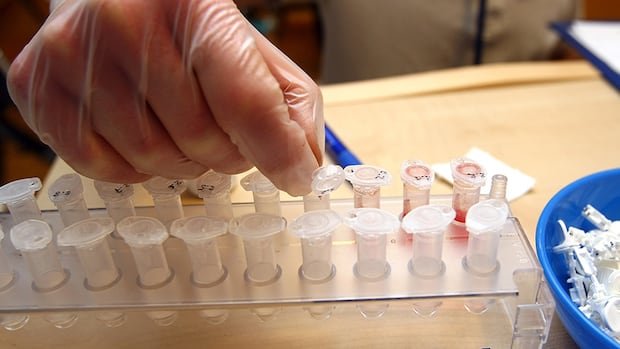A Canadian sports competitor, aiming for the upcoming World Athletics Championships, was getting ready for a workout session when she received an email from Athletics Canada. The communication on August 13 informed her that the saliva test conducted, which was a prerequisite for participation in the championships, did not meet the standards set by World Athletics.
The athlete, whose identity CBC Sports has chosen to protect, had already embarked on her training in Europe when she received this news. Faced with uncertainty about meeting the testing requirements, she expressed frustration at the situation, considering the logistical challenges and the disagreement with the testing policy.
Athletics Canada had enlisted Dynacare, a prominent health solutions provider in Canada, to supply the test kits for the athletes at the national championships in Ottawa. However, an error occurred with the tubes provided by Dynacare, preventing the appropriate testing from being conducted on the samples.
Despite attempts to reach Dynacare for comments on the responsibility for the testing error, no responses were received by CBC Sports. Dynacare acknowledged the mistake, stating that they identified the need for blood samples instead of saliva and immediately recommended blood collection to comply with World Athletics’ standards.
Colin Whitmee, the director of high performance at Athletics Canada, clarified that the saliva test was valid according to World Athletics regulations. Around 37 Canadian female athletes were undergoing SRY gene testing, either through blood samples or swabs, before the deadline at the end of August for the Tokyo world championships in September.
To rectify the testing issue, the Canadian athlete had to travel to a neighboring country to undergo the necessary blood test. Another athlete, also kept anonymous by CBC Sports, faced similar challenges in finding a suitable location for the test but eventually managed to get tested in Spain after a significant journey.
Expressing concerns about the invasive nature of the testing and the stress it caused, the athletes questioned the timing and implementation of the SRY gene testing by World Athletics. They highlighted the financial burden and logistical complexities associated with the testing process, urging for more transparency and consideration from the governing body.
World Athletics defended its decision to introduce the SRY gene test as a measure to uphold the integrity of competition in the female category. The federation emphasized the support from member federations and the importance of the testing protocol in safeguarding fair competition.
Despite the ongoing debate and challenges surrounding the SRY gene testing, the athletes emphasized the need for a more inclusive and transparent approach in addressing gender verification protocols in athletics. They called for greater dialogue and consideration of the ethical implications associated with such testing procedures.

